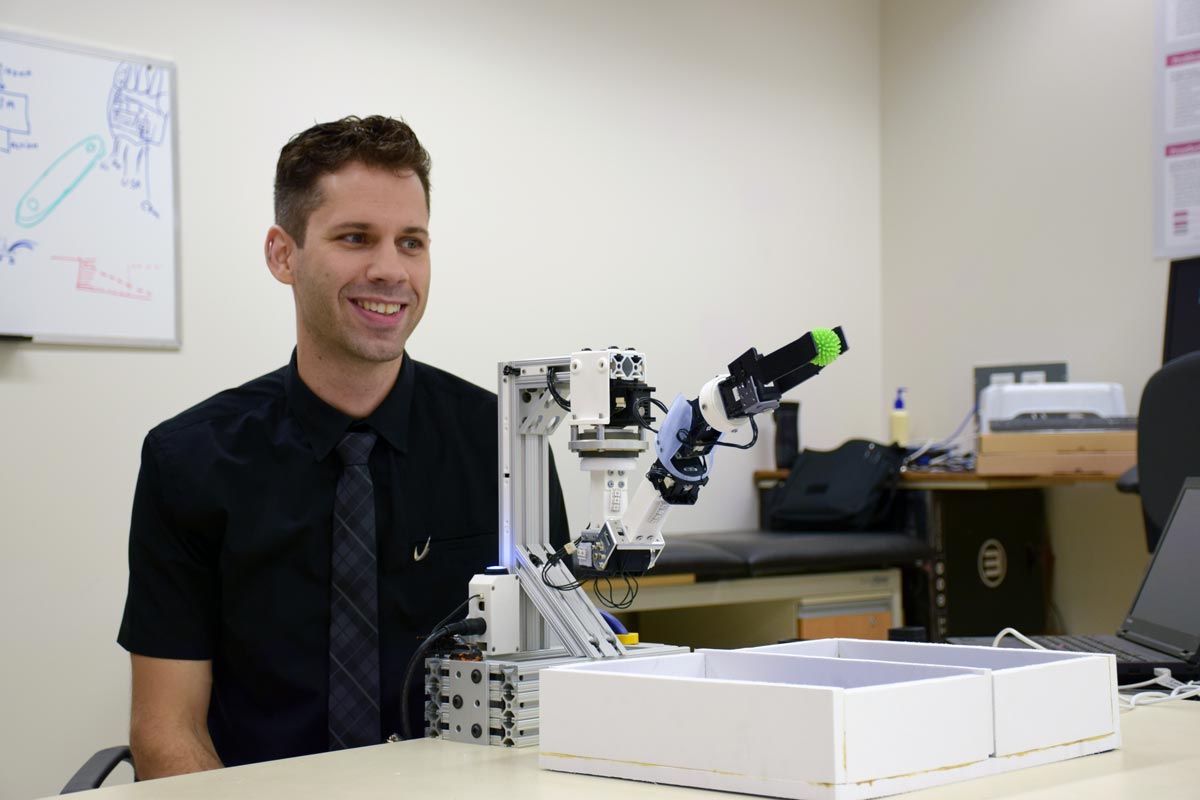
"I can't overstate how significant it is for me to receive the Vanier scholarship," says Craig Sherstan.
"I can't overstate how significant it is for me to receive the Vanier scholarship," says Craig Sherstan, a PhD student in the Department of Computing Science and one of five students in the Faculty of Science who received a Vanier Canada Graduate Scholarship this year. "Without it I simply would not be able to do a PhD." Valued at $50,000 per year for a three-year term, the Vaniers are helping strengthen Canada's reputation as a global centre of excellence in research and higher learning, helping Canadian universities attract and retain the best of the best graduate students.
Vanier scholars demonstrate leadership skills and a high standard of scholarly achievement in graduate studies. Sherstan's research interests are concerned with how to connect man and machine. "I currently focus on the application of a particular form of artificial intelligence called reinforcement learning to the control of prosthetic limbs. The communication channel between amputees and their prosthetic devices is very limited," he explains. "As a result, amputees typically find it very difficult to control the new powered prostheses that are coming to market.
"Vanier scholars demonstrate leadership skills and a high standard of scholarly achievement in graduate studies.
Intelligent prosthesis
"The idea behind my research is that by making the prosthesis itself more intelligent, it will be able to compensate for the gap in communication, thereby make it easier for an amputee to control. The same techniques our lab is developing could also be applied to many other areas where people and machines interact."
Under supervisor Patrick Pilarski, Sherstan and his labmates work with the BLINC (bionic limbs for improved natural control) and RLAI (reinforcement learning and artificial intelligence) labs. "We have a unique opportunity here at the University of Alberta with direct access to one of the largest free-standing rehabilitation hospitals in North America, the Glenrose Rehabilitation Hospital," says Sherstan. "This gives us the opportunity to work directly with people who have undergone amputations."
Science students no strangers to success
Sherstan is joined by the following students from the Faculty of Science, who in 2015 received Vanier scholarships:
- Leslie Robbins from the Department of Earth and Atmospheric Sciences. Robbins' research is focused on Precambrian cherts as a paleoproxy for ancient seawater and implications for the microbial evolution of the early Earth.
- Pawel Mekarski from the Department of Physics. Mekarski is working to determine if the neutrino is its own anti-particle using the SNO+ detector through quantifying liquid scintillator properties in the search of a neutrinoless double-beta decay signal.
- Kyra St. Pierre from the Department of Biological Sciences. St. Pierre is quantifying climate change impacts on the health and productivity of Lake Hazen, the world's largest lake north of 74 degrees North, in Quttirnirpaaq National Park in Nunavut.
To date, 26 University of Alberta Faculty of Science doctoral students have received support via the Vaniers since the Government of Canada introduced the program in 2008/09.